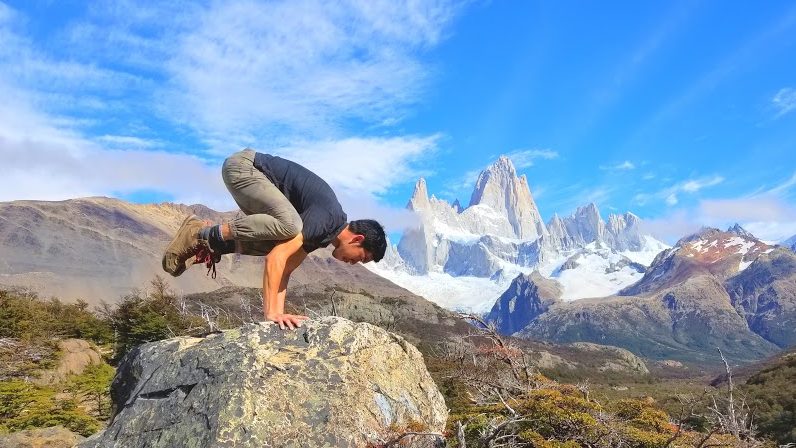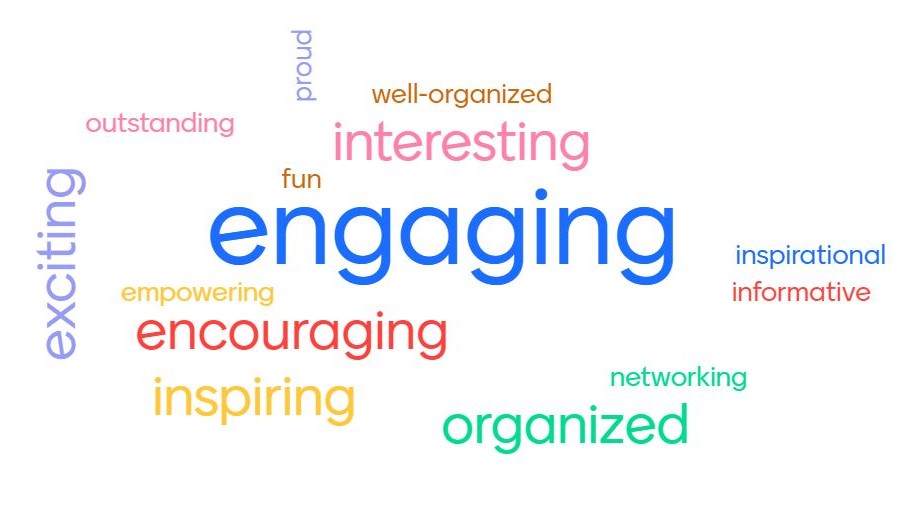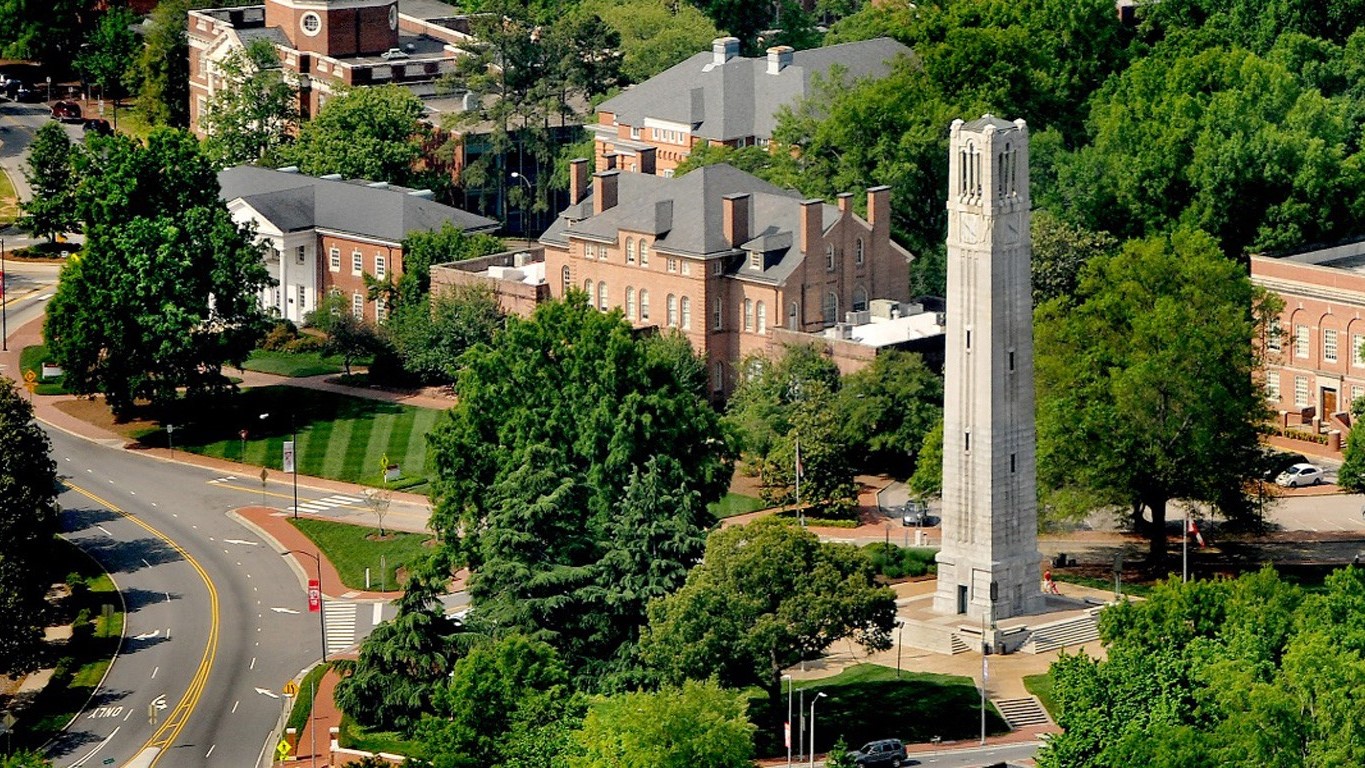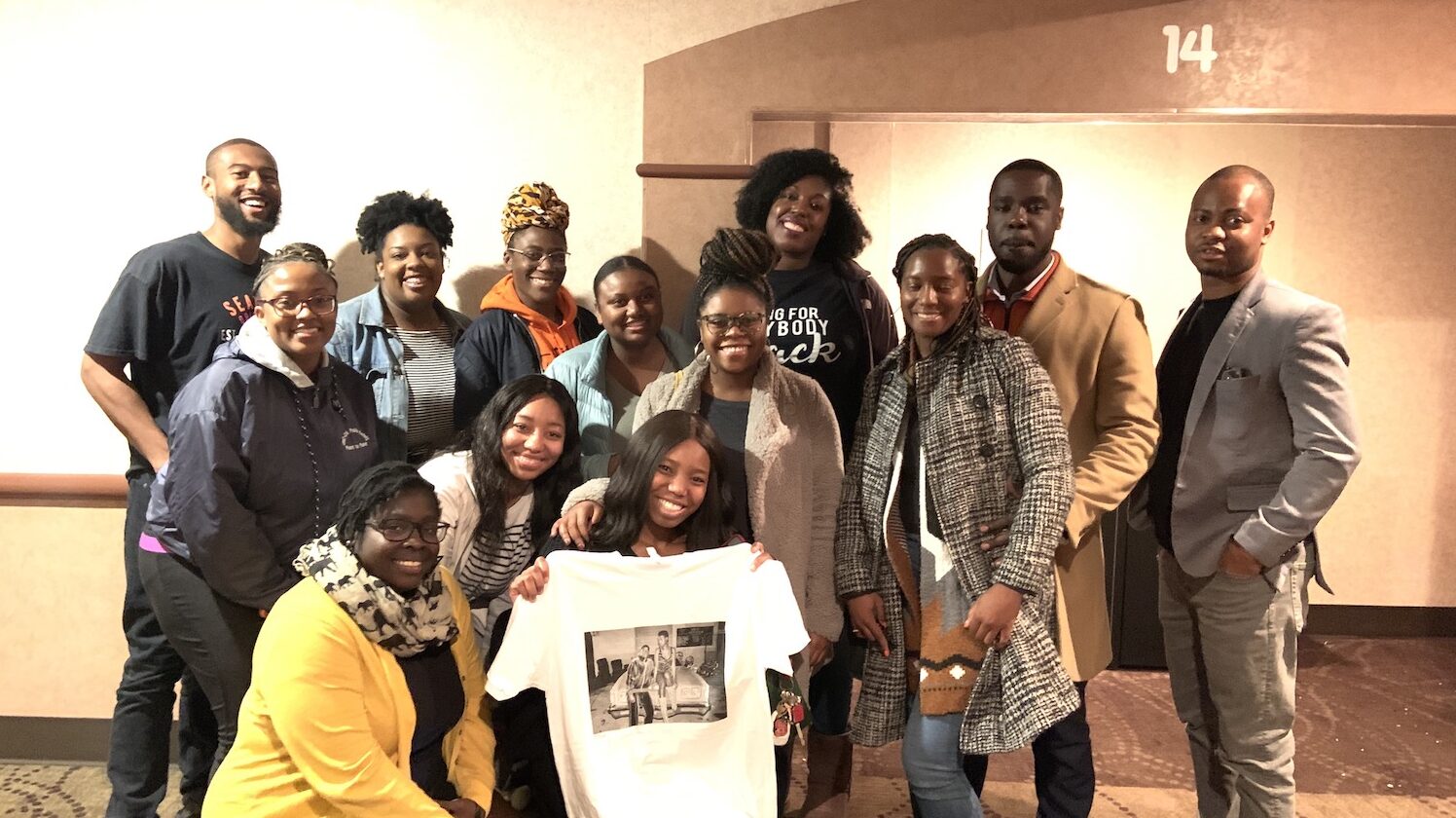Yoga Traveler
Abhichart Krissanaprasit, Ph.D., loves traveling the world and doing yoga; you can follow him on Instagram for proof. Talking with Abhichart, it is clear he has a great attitude on life – trying to live in balance and keep things in perspective. “I live with hope, not expectation,” Abhichart tells me. He goes on to say that he really loves science, teaching/mentoring the next generation, and is very happy doing both in his current role. Early on, he asked his first postdoc advisor in Denmark how to identify coming trends in science. The advice he got? Follow your heart, do what you love and others will take notice.
In following his scientific interests, Abhichart has lived on three continents and done some very cool science along the way.
Science Across Continents
While conducting his Ph.D. in his home country of Thailand, Abhichart received funding to allow him to travel abroad and learn a new technique. He went to Aarhus University in Denmark to learn more about DNA nanotechnology. Abhichart’s Ph.D. work up ‘til then was focused on biosensors but he wanted to branch out and bring novel work back to Thailand. Science focused on DNA origami was first published in 2006 and Abhichart was fascinated by the possibilities for the technology. A decade later, Abhichart was authoring the first publications on the technique from a Thai researcher, something he is very proud of.
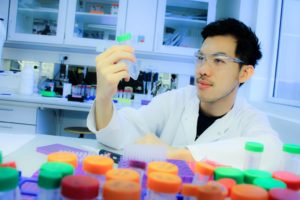
After defending his Ph.D. back in Thailand, Abhichart worked for 2.5 years as a postdoctoral researcher back at the Interdisciplinary Nanoscience Center at Aarhus University learning from the world experts on constructing useable biomolecules from DNA, better known for its role in harboring the genetic code needed to build proteins in the body. The Aarhus group collaborated closely with Thom LaBean, Ph.D., Professor in the Materials Science and Engineering Department at NC State. Abhichart leveraged that collaborative connection to come work with Dr. LaBean as a postdoc in February 2017.
LaBean commented on why he wanted Abhichart to join his research group at NC State:
“I specifically recruited Abhichart from Aarhus because he was already both a good scientist and a good teacher/mentor – exactly what I needed for the young students in my group.”
RNA Origami at NC State
Abhichart’s current work largely focuses on engineering DNA and RNA nanostructures to serve a variety of functions, including medical applications. Building off his training at Aarhus, the work he is doing with RNA origami at NC State takes place at only a handful of institutions across the globe, including prestigious names like Caltech.
Doing such cutting-edge work, perhaps it is not surprising that the first research project Abhichart led in the LaBean lab didn’t work out…experiments failed and the anticipated results did not materialize. Abhichart knows failure is part of the scientific process, though. Sometimes you need to mourn a setback for a day but come back the next realizing you can start again with a different approach or perspective.
Mentoring & Coaching the Next Generation
During his first year at NC State when his own research wasn’t progressing as quickly as we would have liked, Abhichart followed another simmering passion of his and suggested that the lab form a BIOMOD competition team. BIOMOD is an annual biomolecular design competition for undergraduate teams to build novel products using the molecules of life. Abhichart had heard about BIOMOD while working as a postdoc at Aarhus University and wanted to give the competition a try with a group of five NC State undergraduate (and one high school) students. The undergraduate group in the LaBean lab was diverse, representing three separate departments on campus — physics, materials science, and biomedical engineering.
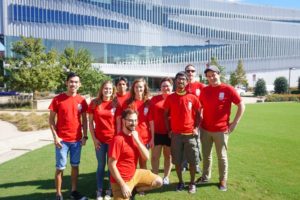
Abhichart spent nearly three months mentoring the students to get them prepared for the competition. A key task he assigned them was, in groups of two, to come up with potential BIOMOD ideas to pitch to Dr. LaBean and himself. A key result of working so closely with these trainees was Abhichart’s appreciation for the imagination and energy they bring to the research enterprise. The students pitched ideas focused on using RNA to cure HIV, DNA to make crystals, and building metamaterials with all sorts of unique properties (bending light to make an invisibility cloak, among them).
The group ended up settling on focusing their BIOMOD project on using RNA origami for preventing the blood clotting process. The team spent the summer of 2018 in the laboratory conducting research, preparing their website, YouTube video, and rehearsing their live presentation for BIOMOD.
Making an Impact
Abhichart then led this student research team called “NanoWolves” to present the technology and its implications for biomedicine at BIOMOD 2018. The NanoWolves team did well, winning second place for the Grand Prize in overall scores, “Best live performance by audience choice”, second place for their project’s website, third place for their live performance, and “Gold” for their project.
In recognition of the amazing work he is doing in his research and mentoring, Abhichart was selected in December 2018 to receive a Postdoc Travel Award to present some of his work at a prestigious Gordon Conference on RNA nanotechnology in January 2019.
Additionally, Abhichart and his NanoWolves team went on to publish their research in the high impact factor journal Advanced Materials in April 2019, with the five undergraduate students and one high school student as official, published co-authors.
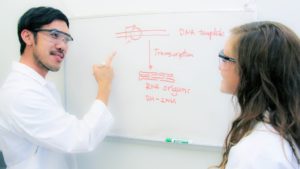
Advice on Including Students in Your Research Work
Abhichart’s extraordinarily successful mentorship demonstrates the critical role postdoctoral fellows can play in educating and inspiring the next generation of scientists.
He shared some advice with me regarding his approach to mentoring students.
- Be patient and nurturing. The students are just beginning to understand the scientific process.
- Test students’ commitment before committing to mentor them. You want to get committed students who are self-motivated. Abhichart gives prospective undergraduate students an assignment to read some research articles and come back to discuss them with him. He doesn’t expect them to fully understand all the material but if they come with insightful questions and curiosity, he knows they will have the passion and drive needed to take ownership of lab projects.
- Give them autonomy. You need to be able to trust students and feel comfortable giving them independent projects to help them develop critical technical and analytical skills and, ultimately, true knowledge and understanding.
- Don’t stifle their creativity. Young students not deeply familiar with the scientific enterprise are free to be creative and not bound by thoughts of practicality…will their idea “work”. They often bring fresh perspectives & lots of energy and passion to the lab.
Blossoming Young Researchers
Abhichart’s mentoring is clearly paying off. With his encouragement and guidance, two undergraduates on his team, Carson Key and Kristen Froehlich, presented at the 16th Annual Foundations of Nanoscience: Self-Assembled Architectures and Devices (FNANO19) conference in April 2019. Faculty in the audience couldn’t believe these were undergraduate students presenting. One of the students was offered a research assistant position as a result of this presentation but turned it down to return to the LaBean group and continue working with Abhichart.
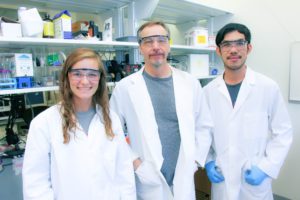
Kristen Froehlich, an NC State aluna (class of 2019) majored in Biomedical Engineering said the following. “Abhichart’s love and excitement to learn and grow is infectious. He was such a galvanizing force through BIOMOD and FNANO and is always encouraging us to push ourselves even further. He is the best teacher I’ve ever had and I am forever grateful for the confidence and inspiration he has instilled in me.”
Carson Key, an NC State senior (class of 2020) majoring in Materials Science and Engineering, said of Abhichart:
“I don’t think Abhichart realizes the magnitude of the impact he has on his students.”
“He’s one of those special people that greatly impacts you in many avenues of your life,” she adds. “Sure, he teaches me how to work in the lab, but he also teaches how to handle failures and see the world in a positive light. He has high expectations, but he makes research fun. Although I am a young student, he has a confidence in me that I really appreciate and he’s okay with seeing me fail, as long as I learn from it and can move on. I would say overall, he teaches me balance.”
Next Steps
Abhichart looks forward to seeing how the students he mentored use their experiences in the lab and competing in BIOMOD to make an impact on the world. As for Abhichart, he ultimately plans to return to Thailand, bringing his expertise and passion for teaching and mentoring to help Thai students develop into world class researchers of their own.
And when things get tough and the inevitable setbacks that accompany science arise, he might teach them some yoga to stay centered, clear their minds, and remember that one needs to appreciate life in all its complexity.
Life is full of highs and lows but one can approach each day with positive expectation and passion, just like Abhichart.
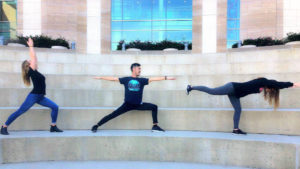
For more examples of your fellow Pack in Action, listen the Graduate School’s GradPack Talks!
Nominate a Trainee to be Highlighted in the next PACK in Action
Do you know a graduate student or postdoc who you believe would be good to profile in ImPACKful? Please fill out this form.
- Categories:
